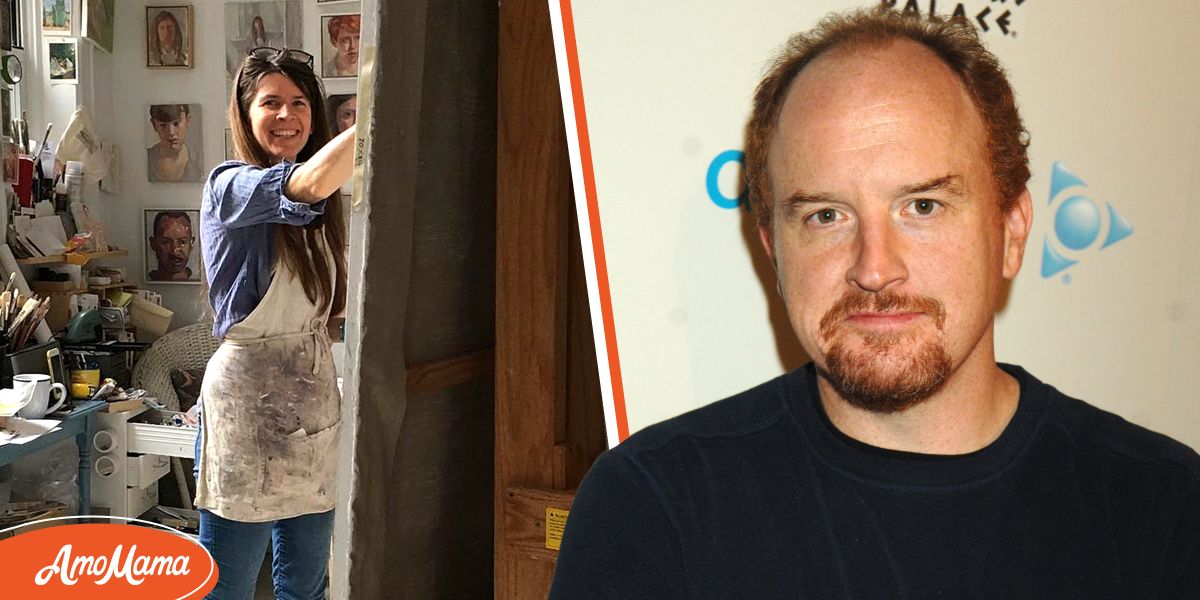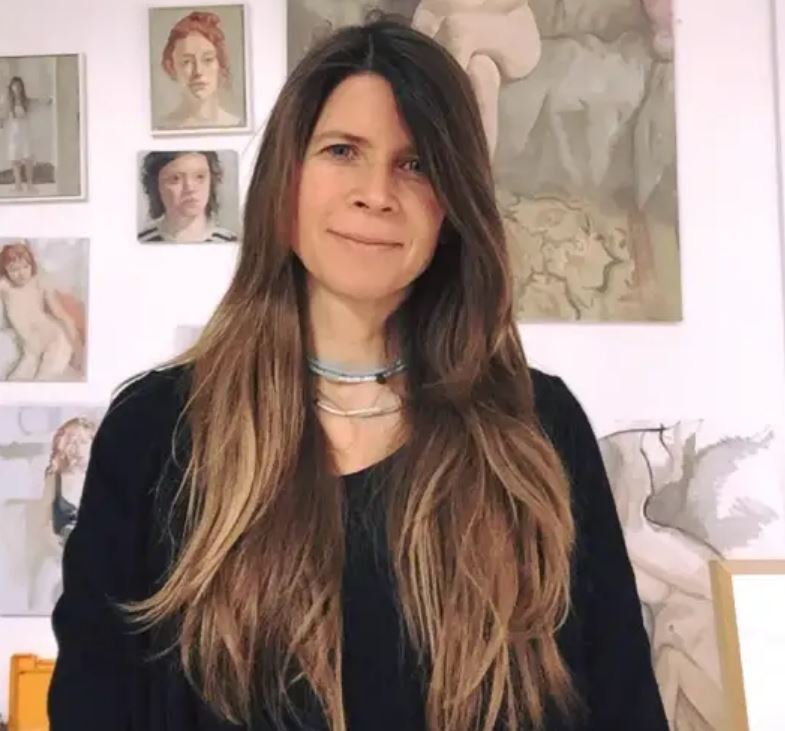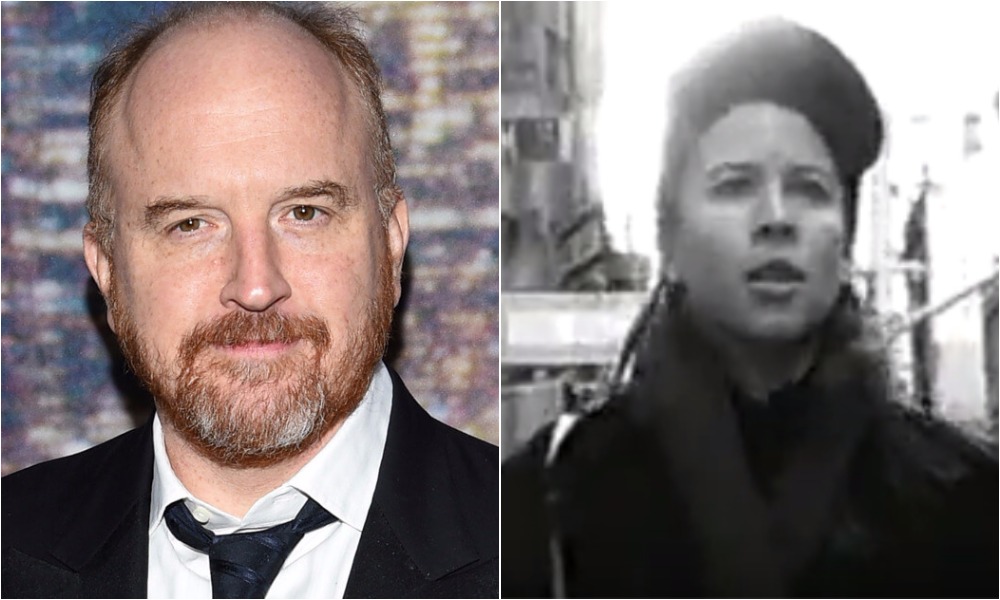Louis C.K. & Alix Bailey: Marriage, Daughters & Life After Divorce
Can a career built on comedic genius and raw honesty withstand the weight of personal transgressions? Louis C.K.'s journey, from celebrated comedian to facing accusations of sexual misconduct, presents a complex case study in fame, fallibility, and the enduring power of art.
The story of Louis C.K., born Louis Szekely on September 12, 1967, is a multifaceted narrative of success, scandal, and the search for redemption. His comedic voice, often characterized by its unflinching look at the mundane and the taboo, catapulted him to the forefront of the entertainment industry. However, his personal life, particularly the accusations that surfaced in 2017, has cast a long shadow over his professional achievements. The comedian's background is a blend of cultures: his paternal grandfather, Gza Szkely Schweiger, a Hungarian immigrant, married a Mexican woman, Rosario Snchez Morales. They raised their children in the Catholic faith. Louis C.K.'s mother, an American, had Irish ancestry, and he himself navigated a childhood informed by these diverse roots.
His rise to fame was marked by critically acclaimed stand-up specials and the creation of the FX series "Louie," a show that blurred the lines between comedy and drama, offering a darkly humorous and often painfully honest portrayal of modern life. The show, which premiered in 2010, followed a divorced man navigating the complexities of fatherhood, relationships, and the absurdities of everyday existence in New York City. "Louie" provided a platform for C.K. to explore his own experiences and observations, earning him numerous awards and critical acclaim. During the show's run and throughout his career, the comedian's work often included mention of his wife, Alix Bailey, and their relationship dynamic. Despite his professional triumphs, allegations of sexual misconduct, which emerged in the wake of the #MeToo movement, challenged the very foundation of his public image and brought his career to a standstill.
| Category | Details |
|---|---|
| Full Name | Louis Szekely |
| Born | September 12, 1967 |
| Birthplace | Washington, D.C., USA |
| Known For | Stand-up comedy, "Louie" (TV series) |
| Marriages | Alix Bailey (1995-2008), Pamela Adlon (speculated) |
| Children | Katherine "Kitty" Szekely, Mary Louise Szekely |
| Ancestry | Hungarian-Jewish (paternal grandfather), Mexican (paternal grandmother), American (mother with Irish ancestry) |
| Education | Attended Newton North High School |
| Notable Works | "Louie" (TV series), stand-up specials, films like "Pootie Tang" and "Tomorrow Night" |
| Net Worth (Estimated - March 2024) | $35 million |
| Website for Reference | IMDB |
The relationship between Louis C.K. and Alix Bailey, who were married for 13 years from 1995 to 2008, was a significant aspect of his life. Bailey, a painter and actress, often appeared in his film projects. The comedian's material frequently referenced their relationship, adding another layer of realism to his comedic persona. Their marriage produced two daughters, Katherine "Kitty" and Mary Louise Szekely. Despite their divorce, the two maintained an amicable relationship for the sake of their children. Their life together, as portrayed in both his stand-up and the "Louie" series, painted a picture of a complex partnership, filled with both humor and the everyday trials of love and parenthood. The impact of the divorce on his life was, of course, an aspect of his artistic material, and an important part of the story.
Alix Bailey's life and career have unfolded in parallel with the comedian's. Born on February 3, 1967, in Washington, D.C., she grew up in a creative household with painter parents, Sandra Stone and William Bailey. She pursued her own artistic path, becoming a successful portrait painter. Her work has earned her recognition in the art world. After her divorce from Louis C.K., Alix remained focused on her career and raising her daughters. Alix's artistic pursuits, including her work as an actress in films like "Pootie Tang" and "Tomorrow Night", have allowed her to create her own space, apart from her previous association with Louis C.K. She has since remained single, and has established herself as a figure in her own right, an accomplished portrait painter and a devoted mother. Bailey's life serves as an example of resilience and the ability to forge a separate identity.
The accusations against Louis C.K. brought his career to a halt, raising questions about the separation of art from the artist. The impact of his actions has been far-reaching, leading to a public reckoning and a period of self-imposed exile. The comedian has attempted to rebuild his career, but the road to redemption has been fraught with challenges. His return to stand-up, as well as his work behind the scenes, has been met with a mixture of criticism and support. His personal life and his art continue to be examined.
The FX series, "Louie," a show about a divorced man raising his two daughters in New York City, offered a fictionalized glimpse into C.K.'s own life. The casting of a black woman as the mother of his two white daughters, as portrayed on the show, was considered a bold and unconventional move. The series provided a platform to explore themes of race, identity, and the complexities of modern relationships. It offered a reflection of the comedian's experiences. The show allowed C.K. to address difficult topics with a blend of humor and introspection, and his artistic choices are still discussed today. The show's legacy endures despite the controversies surrounding its creator, serving as a reminder of the power of art to reflect, challenge, and provoke thought.
The comedian's ancestry is a blend of Jewish heritage on his father's side, with his grandfather immigrating from Hungary to Mexico. His mother had Irish ancestry. This mix of cultural backgrounds has certainly influenced his unique comedic perspective. The cultural mix of his heritage, including the Catholicism his family practiced, provided a diverse backdrop for his life and work. The intersection of his heritage and the impact of it on his work is still open to consideration.
Pamela Adlon, a friend and collaborator, who had worked with C.K. on "Louie," has addressed her experience in the wake of the accusations. Although the full nature of their relationship is unclear, her statements offer some context on the aftermath of the scandal. The allegations, which surfaced during the peak of the #MeToo movement, had a significant effect on those who had worked with and knew C.K. Their responses, including Adlon's, reflect the complexity of navigating the fall out and the effort to find a way to continue their careers.
The story of Louis C.K. is not just the story of a comedian, but the story of someone at the center of a cultural discussion. The repercussions of his actions extend beyond his career, influencing the wider conversation about consent, power dynamics, and accountability within the entertainment industry. His artistic legacy and the impact of his personal actions continue to be debated. The public and the critics continue to grapple with the question of how to reconcile the brilliance of his work with the harm he caused.
The financial success, with an estimated net worth of approximately $35 million as of March 2024, and professional acclaim cannot fully obscure the personal complexities. The contrast between his professional accomplishments and the consequences of his actions continues to frame the ongoing narrative of Louis C.K. His life is, at this moment, a reminder of the lasting effects of personal choices, and also the impact of art.


